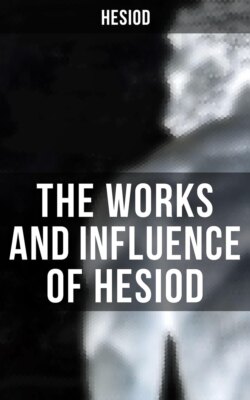Читать книгу The Works and Influence of Hesiod - Hesiod - Страница 5
На сайте Литреса книга снята с продажи.
The Boeotian School
ОглавлениеTable of Contents
How did the continental school of epic poetry arise? There is little definite material for an answer to this question, but the probability is that there were at least three contributory causes. First, it is likely that before the rise of the Ionian epos there existed in Boeotia a purely popular and indigenous poetry of a crude form: it comprised, we may suppose, versified proverbs and precepts relating to life in general, agricultural maxims, weather-lore, and the like. In this sense the Boeotian poetry may be taken to have its germ in maxims similar to our English
“Till May be out, ne’er cast a clout,”
or
“A rainbow in the morning
Is the Shepherd’s warning.”
Secondly and thirdly we may ascribe the rise of the new epic to the nature of the Boeotian people and, as already remarked, to a spirit of revolt against the old epic. The Boeotians, people of the class of which Hesiod represents himself to be the type, were essentially unromantic; their daily needs marked the general limit of their ideals, and, as a class, they cared little for works of fancy, for pathos, or for fine thought as such. To a people of this nature the Homeric epos would be inacceptable, and the post-Homeric epic, with its conventional atmosphere, its trite and hackneyed diction, and its insincere sentiment, would be anathema. We can imagine, therefore, that among such folk a settler, of Aeolic origin like Hesiod, who clearly was well acquainted with the Ionian epos, would naturally see that the only outlet for his gifts lay in applying epic poetry to new themes acceptable to his hearers.
Though the poems of the Boeotian school 1102 were unanimously assigned to Hesiod down to the age of Alexandrian criticism, they were clearly neither the work of one man nor even of one period: some, doubtless, were fraudulently fathered on him in order to gain currency; but it is probable that most came to be regarded as his partly because of their general character, and partly because the names of their real authors were lost. One fact in this attribution is remarkable—the veneration paid to Hesiod.
